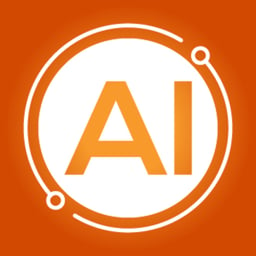
Google unveiled Gemini 3 on Tuesday, marking the latest salvo in its escalating battle with OpenAI for artificial intelligence dominance. The upgraded AI model arrives roughly eight months after the company rolled out Gemini 2.5, promising significant improvements in how users interact with the technology.
The search giant says Gemini 3 will require users to do "less prompting" to achieve desired results, addressing one of the most common frustrations with current AI systems. The new model represents a shift toward more intuitive interactions, where the AI better understands user intent without extensive instructions.
Antigravity Platform Targets Developers
Alongside Gemini 3, Google introduced Google Antigravity, a new agent platform designed to streamline how developers build AI applications. The platform allows developers to "code at a higher, task-oriented level," abstracting away some of the complexity that currently slows AI development.
Antigravity represents Google's bet that the next phase of AI competition will be won by whoever makes it easiest for developers to deploy AI agents. By raising the level of abstraction, Google aims to let programmers focus on what they want their AI to accomplish rather than getting bogged down in technical implementation details.
The platform's name itself signals Google's ambition to lift developers above the gravitational pull of low-level coding challenges. Early access partners have reportedly praised the system's ability to accelerate development cycles and reduce the specialized expertise needed to build sophisticated AI applications.
Eight-Month Development Cycle
The relatively quick turnaround from Gemini 2.5 to Gemini 3 suggests Google is moving aggressively to keep pace with competitors. OpenAI has maintained a rapid release schedule for its GPT models, forcing rivals to accelerate their own development timelines.
Industry observers note that Google has significant advantages in this race, including vast computational resources, decades of AI research, and integration with its dominant search engine. However, OpenAI's partnership with Microsoft and its early mover advantage with ChatGPT have kept the competition fierce.
The speed of Google's release cycle also reflects internal pressure to prove that the company's massive AI investments are paying off. Despite being a pioneer in AI research, Google found itself playing catch-up after ChatGPT's explosive public launch reshaped the competitive landscape.
Reduced Prompting: What It Means
Google's emphasis on "less prompting" addresses a key usability barrier. Current AI models often require users to craft detailed prompts to get quality outputs, creating a learning curve that limits mainstream adoption.
Gemini 3's improved understanding means users can be more conversational and less precise, with the model filling in contextual gaps. This capability stems from advances in how the model processes natural language and infers user goals from minimal input.
The improvement could significantly expand AI accessibility beyond power users who have mastered prompt engineering. If Gemini 3 delivers on this promise, it might lower barriers to AI adoption across consumer and enterprise markets.
Enterprise and Consumer Applications
Google is positioning Gemini 3 for both consumer use through its search products and enterprise deployment through Google Cloud. The dual-market strategy reflects lessons learned from earlier AI launches that focused too heavily on one segment.
Enterprises have shown particular interest in AI models that reduce training requirements for employees. A system requiring less prompting expertise could accelerate corporate AI adoption, where getting staff up to speed remains a significant hurdle.
Consumer applications will likely see Gemini 3 integrated across Google's product suite, from search to Gmail to Android features. The company has been methodically embedding AI capabilities throughout its ecosystem, turning its platform advantage into an AI distribution channel.
The Competitive Landscape
The Gemini 3 launch comes as the AI industry faces increasing scrutiny over costs, environmental impact, and actual business value. Google's timing suggests confidence that it can deliver not just technological advances but practical improvements that justify continued investment.
OpenAI recently released updates to its own models, and companies like Anthropic and Meta continue pushing their AI offerings. The rapid innovation cycle benefits users but also raises questions about whether companies are prioritizing speed over safety and thorough testing.
Google's research culture and infrastructure give it staying power in this marathon competition. While OpenAI captured early mindshare, Google's resources and existing user base make it a formidable long-term player.
What Comes Next
Developers will get access to Antigravity in phases, with broader availability expected in coming months. Google has not disclosed detailed pricing for Gemini 3 or Antigravity, though enterprise packages will likely mirror existing Google Cloud AI pricing structures.
The real test will be whether Gemini 3's promised improvements translate into measurable advantages for users and developers. Marketing claims about better AI capabilities are common; delivering meaningful improvements that change how people work is far harder.
As the AI arms race accelerates, Google's latest moves signal that competition will continue intensifying. For users and businesses trying to navigate the AI landscape, the rapid pace of innovation creates both opportunities and challenges in choosing which platforms to build on.




